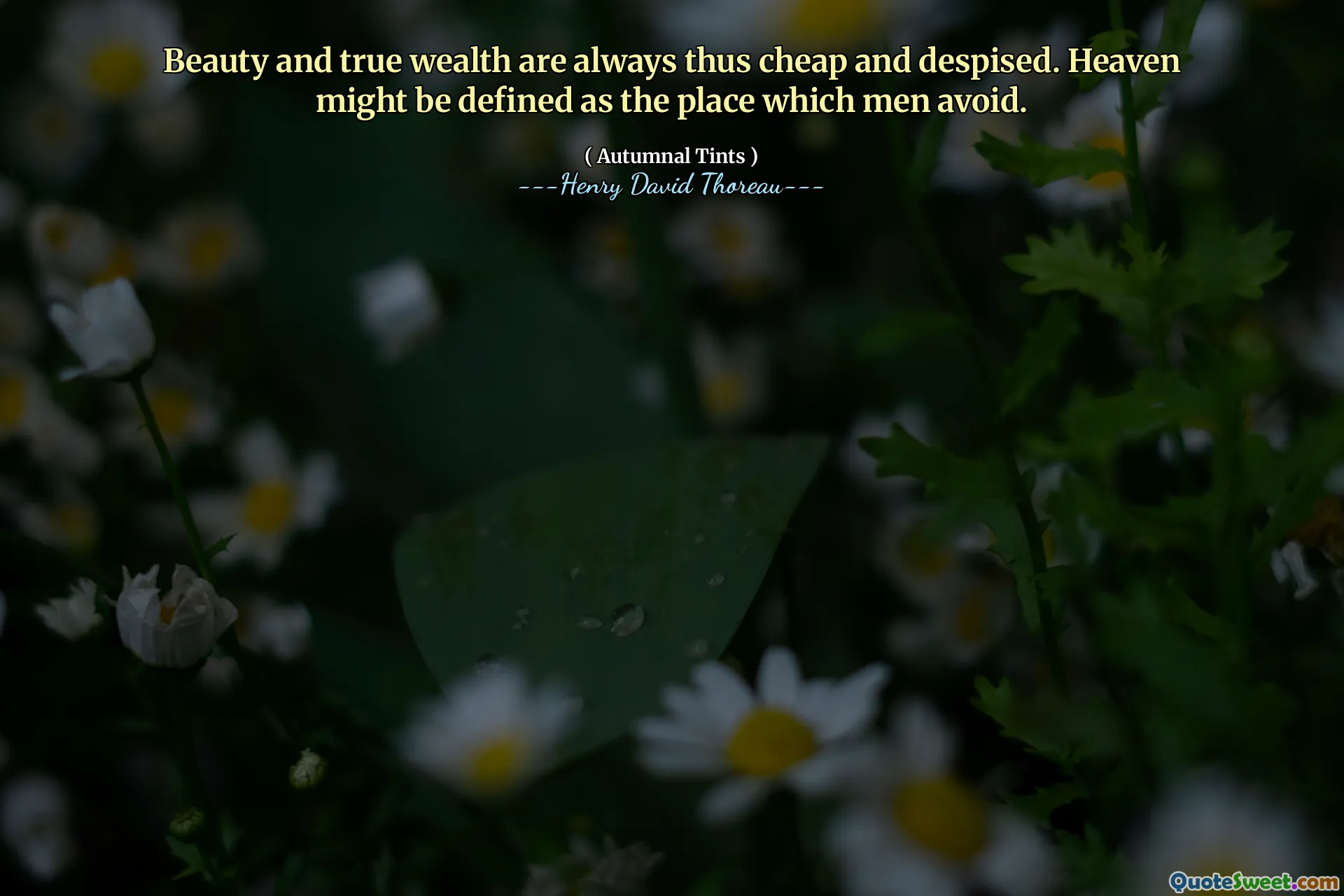
Beauty and true wealth are always thus cheap and despised. Heaven might be defined as the place which men avoid.
This quote by Henry David Thoreau profoundly challenges conventional ideas of value and aspiration. In a world obsessed with material wealth and external success, Thoreau elevates the notion of 'true wealth' and 'beauty' as qualities often overlooked and undervalued because they appear cheap or insignificant. It suggests that the things genuinely enriching life—such as inner peace, natural beauty, authentic experiences, and moral virtue—may be disregarded by society because they do not come with the usual markers of status or monetary expense.
Further, the reflection on heaven as "the place which men avoid" is particularly striking, inviting readers to reconsider preconceived notions of paradise. Typically envisioned as an ultimate reward or a blissful state of being, Thoreau instead suggests that the moral or spiritual heaven may actually represent a realm that people reject or avoid due to its demands or its contrast with earthly desires. This can evoke considerations of how worldly preferences and fears prevent us from embracing a higher or purer state of existence.
The quote encourages deep self-examination—calling on us to question what we truly value and why we disregard certain virtues or ideals simply because they're not glorified by societal standards. It also raises the issue of our collective reluctance to transcend superficial pursuits and embrace a more profound, perhaps demanding, definition of happiness and fulfillment. By highlighting the paradox of disdain for true beauty and avoidance of heaven, Thoreau pushes us to transform our understanding and seek a richer, more meaningful life.






